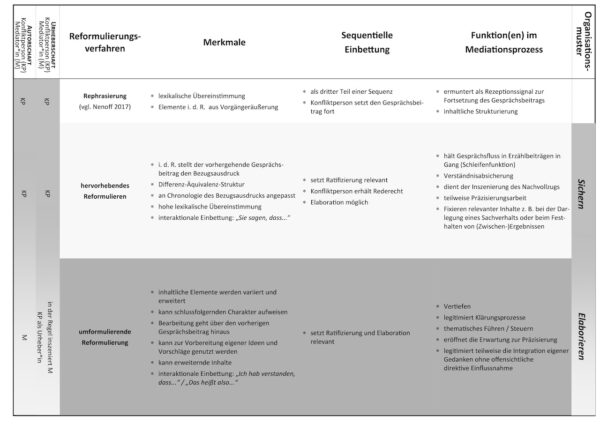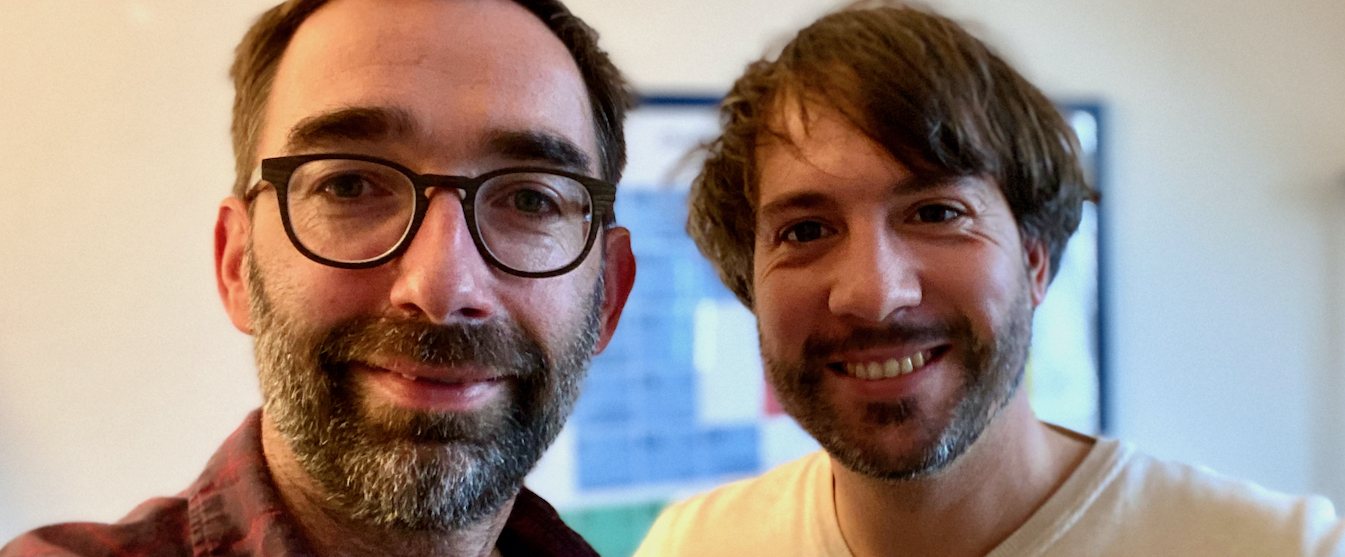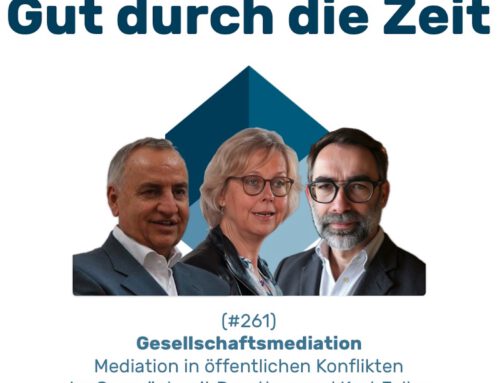INKOVEMA Podcast „Well through time“
#13 – Paraphrasing analysed in terms of conversational linguistics.
In conversation with Hans Nenoff
Well through time. The podcast about mediation, conflict coaching and organisational consulting.
Sascha Weigel goes in conversation with the Speech scientist and mediator Hans Nenoff the Paraphrasing – to get to the bottom of the linguistic – dialogue. They follow the functions and objectives of the mediators' constant repetition and assurance of understanding and, not least, track down the myth that mediators do indeed influence the content of the conflict discussions. Although this influence is below the legal perception threshold and does not fundamentally confuse the distribution of responsibility for the outcome of the mediation, the mantra of mediators that they do not propose or introduce solutions seems at least worth supplementing.
Method:
The results are obtained empirically with the help of conversation analysis methods. The analysis follows the basic assumption that mediation conversations (like all other conversations) are a reflection of a structured social order and that the participants create this order moment by moment. Accordingly, the analysis can also reveal the principles moment by moment.
Results:
-
- In the mediation process, reformulations occur in many different ways (the terms paraphrasing and verbalising are more common in the specialist literature on mediation and conversation research):
- as a literal repetition
- than emphasising individual content segments
- as a reformulation and expansion of thoughts
- Paraphrases fulfil very different functions:
- verbatim paraphrases encourage you to continue speaking
- Emphasising serves to ensure understanding and clarification; it is also an important tool for the mediator to keep the conversation flowing
- Rephrasing serves to deepen the content, as the person in conflict usually elaborates on the content in detail
- In the mediation process, reformulations occur in many different ways (the terms paraphrasing and verbalising are more common in the specialist literature on mediation and conversation research):
- Graphical summary:
- The figure shows the forms and functions of reformulations in the mediation process
- Nenoff (2020, p. 175): Mediation reformulation processprocess. Dissertation. Jena.

Source: Nenoff, 2020, 175.
literature discussed:
- Hans Nenoff: Verbatim paraphrases in the mediation process. A conversation-analytical contribution, in: Kriegel-Schmidt, K. (ed.), Mediation as a branch of science. Im Spannungsfeld von Fachexpertise und Interdisziplinarität, Nomos-Verlag 2017. (Publisher link)
- (This article illustrates the resources of conversation analysis methods for analysing the mediation process. Using the example of verbatim paraphrases, it shows how conversation analysis can be used to gain a deeper understanding of the forms and functions of interventions in the mediation process and how this understanding can be fed back into professional work. The article shows that verbatim paraphrases are systematically used by mediators and fulfil a number of useful functions: they serve as feedback, continuers, preparers and focusers).
- Hans Nenoff: Reformulation procedures in the mediation process. Dissertation. Jena. 2020.
- [There will certainly be a link to this soon via the Thuringian State Library]
Left:
- FSU Jena, Faculty of Philosophy. Teacher for special tasks: University website





Leave A Comment